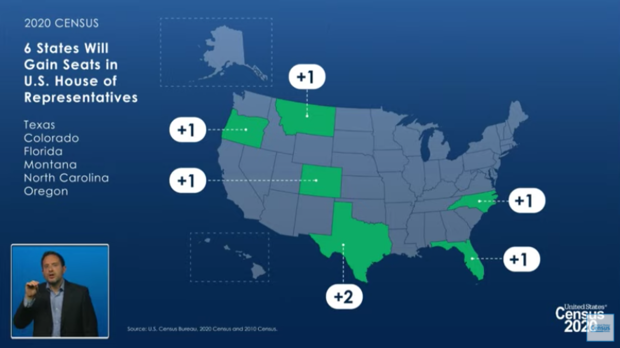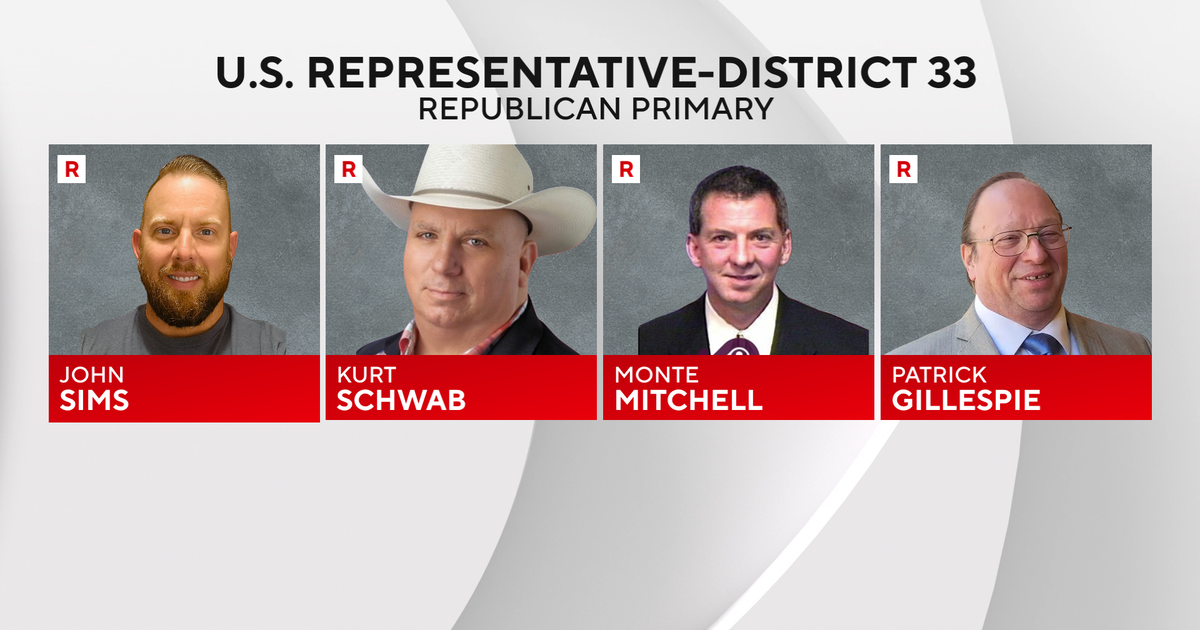Minnesota To Keep All 8 Congressional Seats After Census 2020 Results
MINNEAPOLIS (WCCO/AP) -- Minnesota's congressional seat status will remain status quo, following the U.S. Census Bureau's new population numbers for 2020. The state will hold onto all eight seats the state currently holds in the U.S. House of Representatives.
On Monday afternoon, Census officials held a press conference to announce the data gathered from the first 2020 Census results. These state population counts are used to apportion seats in the U.S. House of Representatives among the 50 states.
Overall, seven seats are shifting among 13 different states. Texas gained two seats, and a number of other states gained one, including Florida, Colorado, Oregon, Montana and North Carolina.
Seven states are losing one seat each, including New York, Illinois, Ohio, Pennsylvania, California, Michigan and West Virginia.
The results showed a continued shift in population as Americans move to warmer climates, especially the Sun Belt. Due to this migration trend -- with stagnation also continuing in the Northeast and Midwest -- many pundits expected Minnesota to potentially lose one seat.
Minnesota's growth rate of 7.4% was slightly better than the nationwide rate of 7.1%, helping the state keep all eight of the U.S. House seats that it has had since the 1960s.
Minnesota may have been aided by a stronger-than-usual response to the Census Bureau's survey. Three-fourths of Minnesota residents voluntarily responded during the initial phase of the census — top among states and well ahead of the national average of a two-thirds response rate.
Also, Texas and Florida both ended up gaining one fewer seat than many projected.
Census Bureau staff said Minnesota received the last congressional seat allotted, just edging out New York (reportedly by fewer than 100 residents). Minnesota also received the last House seat in 2010, in that case just edging out North Carolina.
The announcement came as a relief to Minnesota Democratic and Republican leaders.
"Today's news is a testament to the people of Minnesota's incredible commitment to civic engagement and democracy," state Democratic Party Chairman Ken Martin said in a statement. "As the state with both the highest census response rate in the nation at 75.1% and the highest voter turnout in the nation, Minnesotans should be proud of these results. We stepped up, fought hard, and retained a seat in Congress that most observers thought we would lose. I am thrilled that Minnesotans will retain their clout in Congress and say in the Electoral College."
GOP state Chairwoman Jennifer Carnahan noted that Minnesota Republicans have flipped three congressional seats in the past two election cycles. She didn't mention that Democrats flipped two.
"No matter what the new districts look like, we are optimistic about our possibilities to flip even more seats in 2022," Carnahan said.
It will be up to the governor and Legislature, the only one in the country where power is divided between Democrats and Republicans, to decide how to redraw voting districts based on more detailed census data that is expected to be released in late summer. In the likely case that they can't agree, the task will fall to the courts.
The official Census count of the U.S. population for 2020 is 331,449,281. The growth rate over the last decade was 7.4%, which represents the second slowest rate of population growth in the entire history of Census tallies.
The Census reports that since 1940, there has been a shift of 84 season to the South and the West from the Northeast and Midwest.








